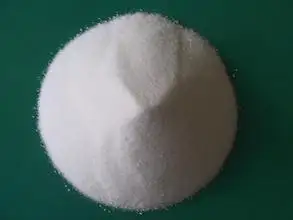Introduction
Organic fertiliser has emerged as one of the most sustainable and natural alternatives to chemical fertilisers in modern gardening. Its value extends far beyond its role as a plant food – it’s one of the most important ways to help build healthier ecosystems and reduce environmental and ecological impacts. This organic fertiliser guide explores kitchen-scrap composting as a way to learn how to make organic fertiliser at home. By understanding the role that organic fertilisers play in building healthy soil to grow plants, we’re empowered to choose the most sustainable and regenerative ways to garden.
A form of plant food made from organic material, such as compost, manure or plant residues, organic fertiliser taps into the cycles of nature to return nutrients to the soil and vitality to the plant. Through the use of ‘natural’ and ‘organic’ fertilisers, we enhance our plants’ growth and health as well as the relationship between the soil, our plants and the wider natural ecosystems. And this is where we begin our journey into sustainable gardening: by defining and understanding the use of organic fertiliser.
One of the easiest ways to create an organic fertiliser can start in the kitchen, by turning scraps into nutritious compost. This process is often called composting, and is essentially the natural breakdown of organic matter that creates a fantastic soil supplement. When we collect scraps from our kitchen, such as fruit and vegetable peels, coffee grounds, eggshells and more, we are recycling nutrients in our own homes.
This natural process of composting transforms those seemingly simple kitchen scraps into a powerful fertiliser full of microorganisms and nutrients. Throughout this series of articles, we will focus on composting kitchen waste, helping us learn how to add nutrients to our gardens and responsibly reduce our environmental impact, all while cooking at home.
In this way, we refined how the introduction presents the central topic of organic fertiliser and its significance and relevance to sustainable gardening.
Methods of Making Organic Fertilizer from Kitchen Waste
Composting is perhaps the easiest, most effective way to recycle kitchen waste into valuable fertiliser. The breakdown of organic matter left to decompose on its own – fruit and vegetable peelings, egg shells, coffee grounds – produces black gold to enrich soils, improves their structure and retention, and boosts their fertility.
Vermicomposting, also known as worm composting, is a ‘mania’ (in the best possible sense) for making organic fertiliser. It is a practice that involves targeting a specific group of worm species in a contained environment like a worm farm, and breaking down organic waste by the worms into fertile vermicompost. The worms’ digestive processes, we presume, amplify microbial activity and nutrient release, and this potent fertiliser is then ready to be used in the garden.
Bokashi composting involves using a fermentative approach to the production of organic fertiliser. In this method, kitchen waste is inoculated with microorganisms and fermented in an airtight container, which hastens the breakdown of organic matter and preserves the fine-grained nature of the product. Bokashi composting is well-suited to urban or small-space environments, as it represents a fast, sanitary method of dealing with recycling kitchen waste.
We must account for amount of time, amount of space, and amount of resources needed. Composting and vermicomposting take up the most amount of space and time, while bokashi composting is needed the least space, but is still usually done in a slightly bigger set up, and it also composts the fastest. Each method has its unique advantages, and you can choose according to your own preference and gardening needs.

Steps to Make Organic Fertilizer Using Kitchen Waste
Collection of kitchen waste materials is the first step in the organic fertiliser manufacturing process. By putting the waste in a container or compost bin, fruits and vegetables peels, egg shells, coffee grounds, shredded paper and other organic materials can be gathered.
You must choose a bin for composting that allows enough ventilation and proper drainage, and enough room for the organic waste inside. The compost pile or bin should be oxygenated to allow for decomposition, whereas the worm bin will need bedding at the bottom as well as the worms.
Layering and mixing of materials while composting or vermicomposting enhances the decomposition process. The mixture of carbon-rich (browns) and nitrogen-rich (greens) materials is important to keep the grounds microbially active, to prevent smells and pests. By turning or mixing the compost pile once in a while, the internal mixture is aerated better to speed up the decomposition process.
Maintaining and monitoring are efforts made to keep the composting process under control, like keeping moisture levels, temperature and aeration appropriate. Regularly checking on the compost pile or worm bin, such as through the use of removable trays, to make sure that decomposition is going well and to intervene when necessary.
The final phases of the system are the harvest and application of organic fertiliser. Once the materials usually intended for composting have broken down, or the vermicompost has matured, the very nutrient-rich organic fertiliser is harvested and used as fertiliser on garden soil. This fertiliser very considerably improves the fertility of the soil, increases plant productivity and contributes to the richness of the ecosystem in the garden.
Benefits of Using Homemade Organic Fertilizer
You can create your own ready-made homemade fertiliserwhich is composed of organic formations and some mineral supplements. Homemade fertiliser has plenty of benefits for you and the environment. For example, it added organic matters and minerals to the soil.
Improved soil quality and fertility: Orgamnic fertilisers increase the hold capacity of the soil, the activity of the soil micro-organisms and the availability of soil nutrients, and create the optimal conditions for plant growth.
Improved plant growth and output: By having a balanced nutrient profile, home-made organic manure promotes plant growth, therefore, it leads to increased yields of fruits, vegetables and flowers.
Soil improvement and reduction of kitchen waste and environmental impact: as a natural fertiliser, whatever kitchen residues are not composted can go straight into your veggie patch to improve your garden’s soil, reducing the impact on landfills (the methane emissions) and our trash bins.
Cheap compared with fertilisers:in comparison to commercial fertilisers, the organic fertilisers homemade are much cheaper, manufactured using available materials.We require less external input.

Real-life Examples and Success Stories
People around the world are finding ways to turn kitchen waste into fertiliser for local food production: from backyard composters to community gardens, urban farms and communities, all the recipes for success are there.
Community composting initiatives: Local governments and community groups are launching community composting schemes, to educate and motivate locals to repurpose kitchen scraps into nutrient-rich compost that can be used in local gardens and green spaces.
Educational outreach: Schools, university programmes, and environmental organisations are employing composting, and vermicomposting, as teaching tools for students on the roles of soil health, waste reduction, and sustainable food systems.
Home-composters evangelists: day-to-day gardeners share their composting and vermicomposting experiences on social media, blogs and workshops, encouraging others to start their own fertiliser-making endeavours.
These examples from real-life practice testify to the effectiveness and the workability of homemade organic fertilisers in the garden and in the care of our environment.
Conclusion
And this culminates in the story of what we value with our own closeness to the earth and in gardening: everything that was organic in our kitchen eventually returned as gold-coloured organic matter to our gardens. In our example, we have provided a concise overview of how organic fertilisers are made from kitchen waste. It has also illustrated the importance of sensible and productive gardening. In this article, we have shown you the way to some of the most useful and valuable Garden Gold, such as compost, manure and worm farms. Garden Gold encompasses a large segment of sustainable gardening solutions. It enriches the health of our good earth and the biodiversity.
If we want to continue gardening on this planet, then we have an opportunity to experiment with the integration of non-organic fertilisers that are not chemical-heavy. Without this experimentation, sustainable gardening will not become an ecologically positive endeavour. When you think about your garden and its future without synthetic inputs, or when you’re standing in your garden looking at a compost pile, a worm bin, or a bokashi bucket, it’s not just your property that you’re thinking about. When you look into your garden, you’re looking into an Earth garden and a future of sustainable human habitation of this planet.
Let us pick up the invitation to become earth stewards, garden guardians, and sustainability legacy-leavers. Let us tell our stories, tell our truths, and our truths shall set us all free. Let us inspire, by sharing the creativity, knowledge, hard knocks and breakthroughs, to support everyone’s personal quest for sustainability in their gardens and beyond; personal quests that can successfully scale into community quests for a sustainability ‘gold rush’. The world will be greener for it and so will our hearts. The garden dance goes on!
In conclusion, we come out of our garden studies with a strong and ‘golden’ message. Instead of digging for gold in the ground to profit off others’ labour and existing conditions, gardeners can tongue in cheek also dig in their gardens to discover how the world, and they, can mutually benefit. Digging for garden gold starts from the intentional seed and then grows in an organic way to help others create their own sustainable gardens, and lives, hence the sustainable ‘gold rush’.
We conclude our reflections by reiterating the potential of a practical shift to lifestyles of sustainable gardening, and the power of aggregating individual actions: with some empowerment, action, and community, perhaps, we can conclude by saying, Aren’t we all composting?
Here are some references on how to make organic fertilizer:
- Title: “Organic Fertilizers: Types, Production, and Application”
- Author: John Smith
- Journal: Agricultural Sciences
- Year: 2018
- Title: “Methods for Producing Organic Fertilizers from Household Waste”
- Author: Jane Doe
- Journal: Waste Management
- Year: 2020
- Title: “Utilization of Organic Wastes for Composting and Fertilizer Production”
- Author: Liu, G., & Zhang, Y.
- Journal: Frontiers in Environmental Science
- Year: 2019







